It's no surprise that medical school and work in the healthcare sector is challenging.
Alexa, a young physician, knows these challenges firsthand.
To help manage a demanding workload as a medical student and now as she enters a medical professional, Alexa uses a journal to stay on track with her busy schedule. To learn about Alexa's career, her studies, and the impact of journaling, we interviewed her.
Here's our discussion:
You studied medicine and you're soon starting an emergency medicine program in the United States. Can you tell us why you chose to enter the medical field?
I didn't realize I wanted to go into medicine until my sophomore year of college, quite by accident. I had the chance to shadow surgeons in several specialties, and their love for the job completely captivated me.
The more I thought about it, the more I felt that medicine suited my personality much more than engineering - I loved the concept of lifelong learning, as well as the chance to be there for my patients at their most vulnerable.
What inspired you to share your studies and journey in medicine with your followers on Instagram?
I was an avid studyblr fan on Tumblr, and one day I discovered @studydiaryofamedstudent. She had an incredible account, and I felt like I wanted to inspire people like she had inspired me.
The rest is history. I loved sharing the day-to-day life of a medical student, and now, sharing my work as a young physician.

Can you tell us about how you use your journal? Do you find a journal to be a helpful professional tool or more of a reflective personal outlet?
I use my journal mainly for organizing my life as a student/professional. I often have many things going on at once, and my mind is filled with a complex jumble of appointments, classes, ideas and tasks. My journal was an essential part of my medical success (and sanity).
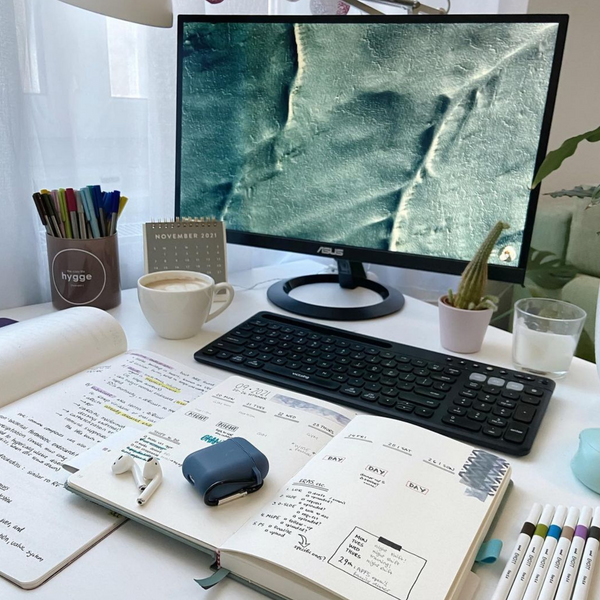
Do you have a particular journal layout or journaling method that you've found beneficial to your studies and lifestyle?
The weekly layout is my absolute favorite; I used to experiment a lot with daily ones, but I never found those as useful. I don't like to plan my day to the hour, because I've found that life is too unpredictable. I like having a general idea of the week, and that gives me the peace of mind to achieve the things I need to each week.

You've shared a number of student tips in previous Instagram posts addressing exam preparation and difficulties in studying. Can you tell us about some of the productivity or motivation challenges you or other medicine students sometimes encounter?
I think the sheer amount of studying required can definitely wear you out. I had months on end -- while I was studying for the USMLE for example -- where I genuinely studied for 8-10 hours each day, every day.
The other difficulty is actually not related to the academics, but rather the fact that medicine (and many advanced degrees, such as law) result in many extra years spent in school, while watching one's peers go on to advance their careers, buy first homes and start families.
Can you tell us how you dealt with challenges while studying?
I found that working out regularly was one of the best things I could do for my mental (and physical) health while studying. Coming from a non-athletic (and rather lazy) background, I never thought that I would enjoy exercising, but I discovered that I loved workout classes.
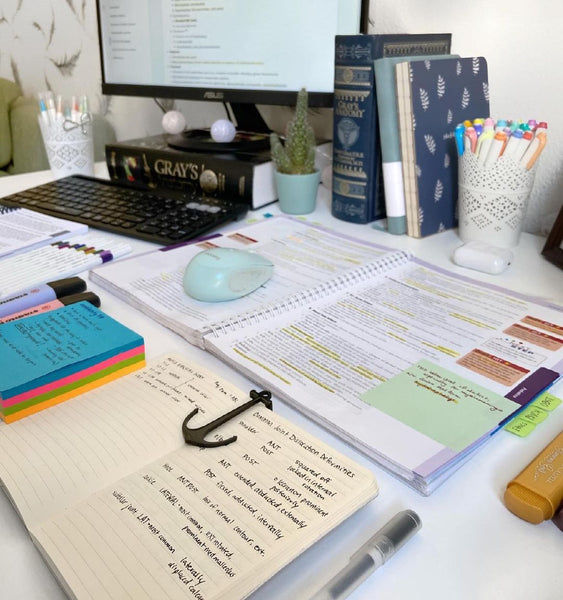
I used my journal to schedule 3-4 gym sessions into my week at the start of each week, so that I would always go into a new week with the mindset that I've made time for the gym.
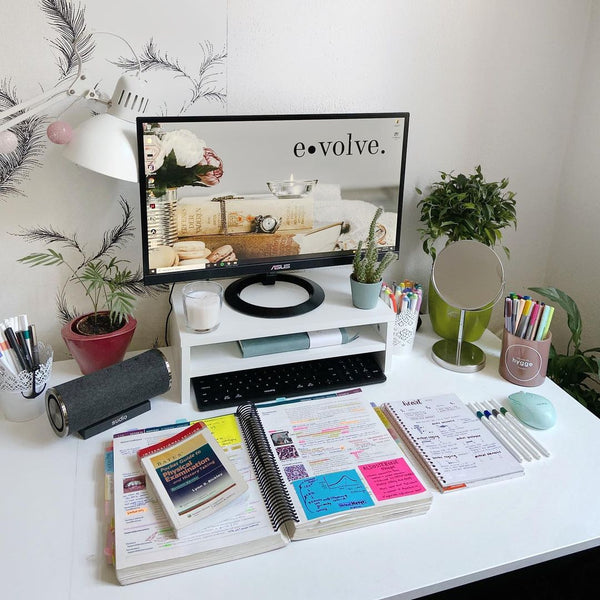
The other way that I dealt with challenges during med school was to schedule fun into my life - I know it doesn't sound glamorous, but I would put "date night" and "hangout with friends" into my calendar, forcing myself to make time for it.
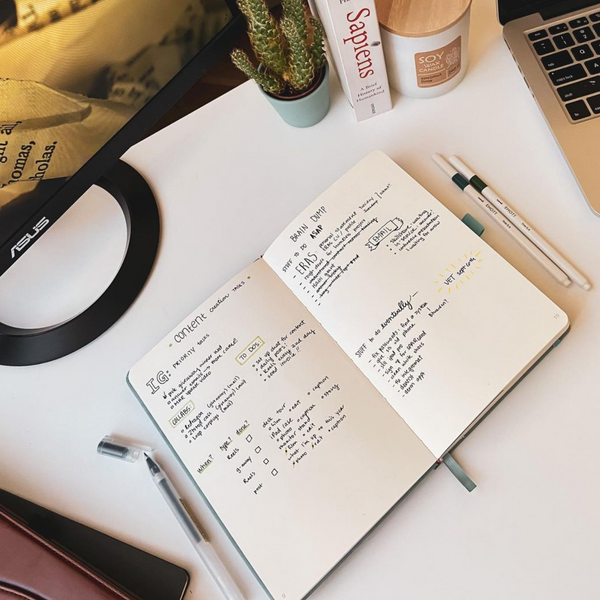
You've shared images of your lovely work area. How do you create a study environment that is conducive to exam success?
I tried to make my study area one that was inviting, welcoming, pleasant. I loved waking up in the morning and moving to my desk for that first coffee of the day, to start my to do list nice and early.
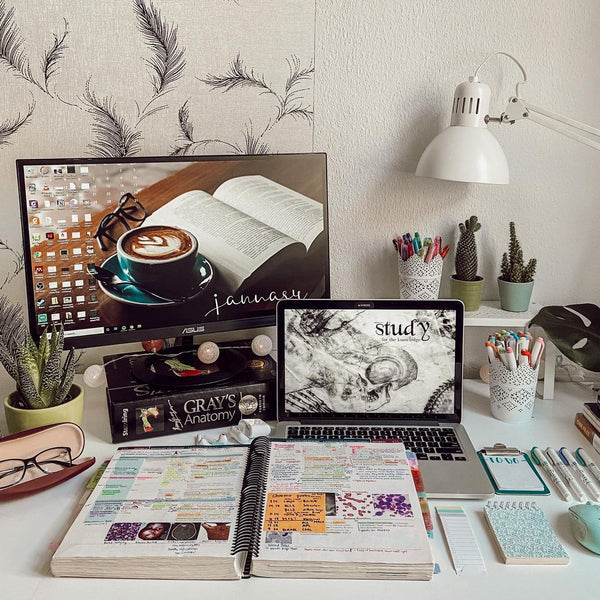
I often rearranged my desk, not just for the sake of creating nice IG photos, but because each time I worked at a slightly different setup, it felt like a fresh start, or a much-needed change.
Finally, could you share your favorite study tip with our readers, especially for those who may be studying medicine or who plan to?
My favorite study tip is to practice active recall. It's tough, because it's so much more exhausting for your brain than passive studying, but it makes a world of difference.
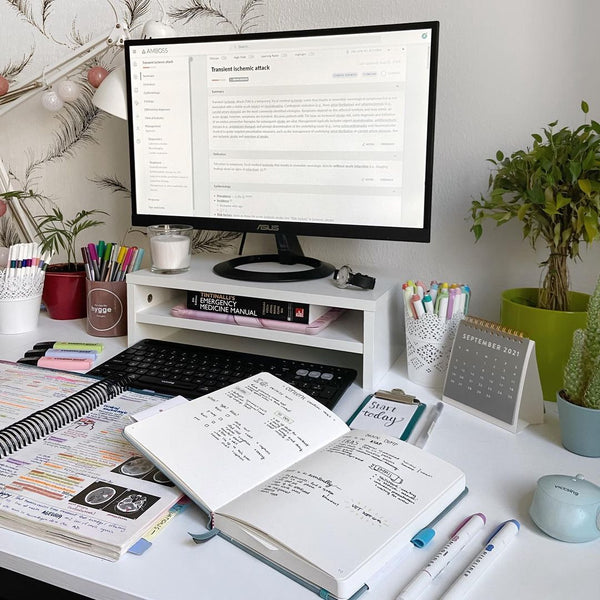
There are countless ways to do active recall -- flashcards, quizzes, writing things out, reciting topics, teaching someone else -- and it often takes more time, but it'll help you learn so much faster.

Oh, and never underestimate the power of regularly sleeping 7-8 hours a night! Good luck with school - experiment with different study techniques, and try to maintain a healthy lifestyle (eating, sleeping, exercising); your body will thank you later.


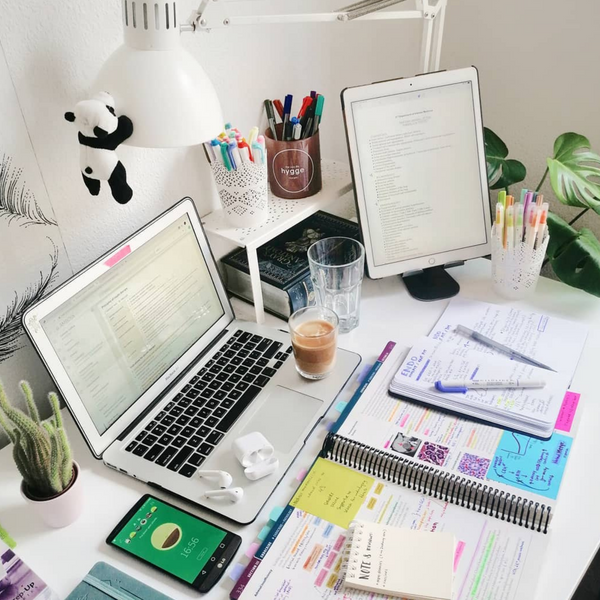
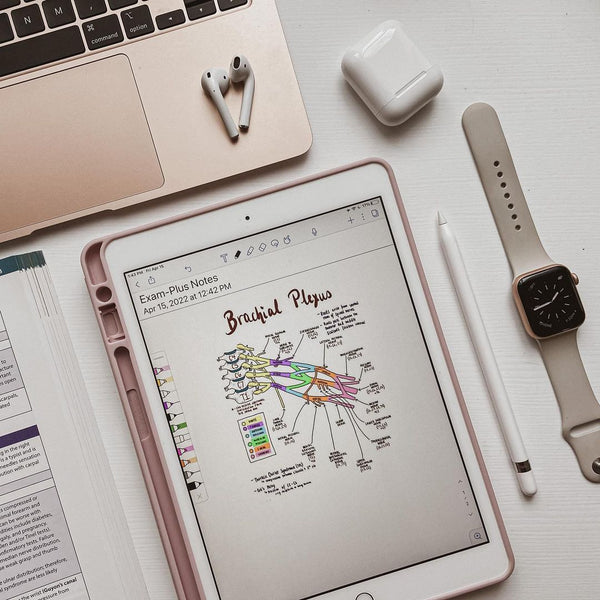
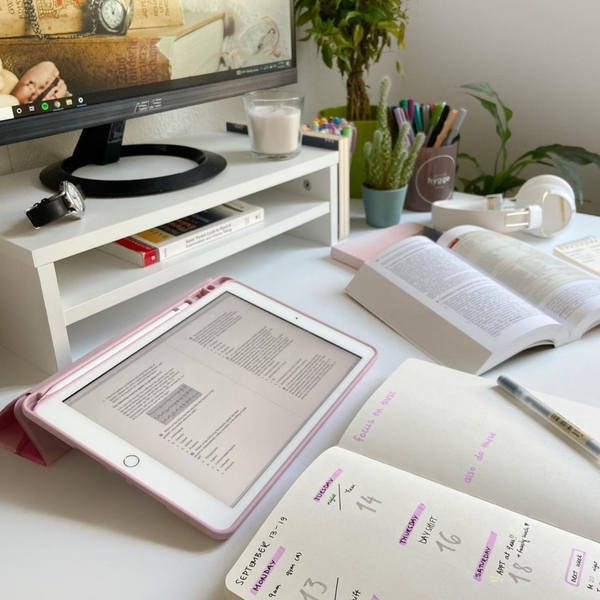



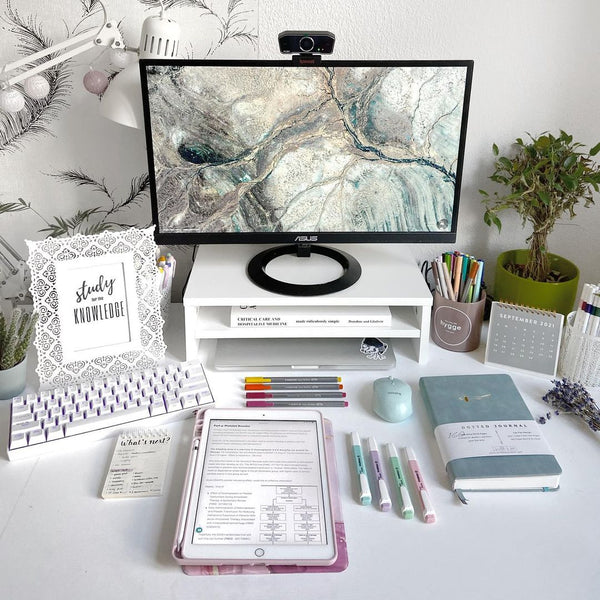
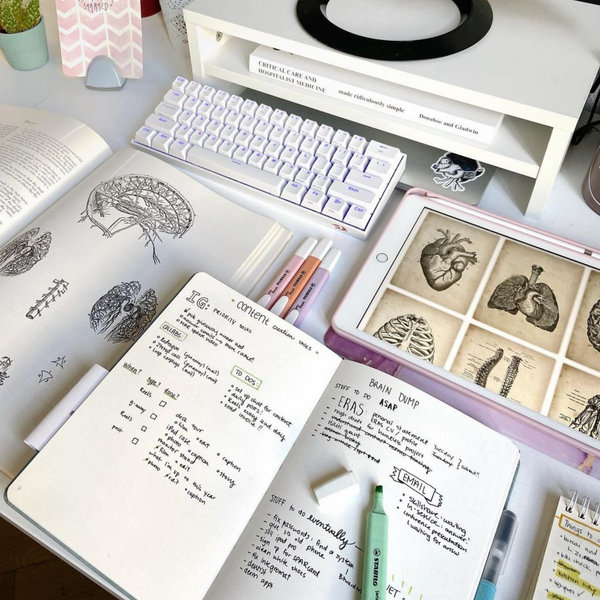







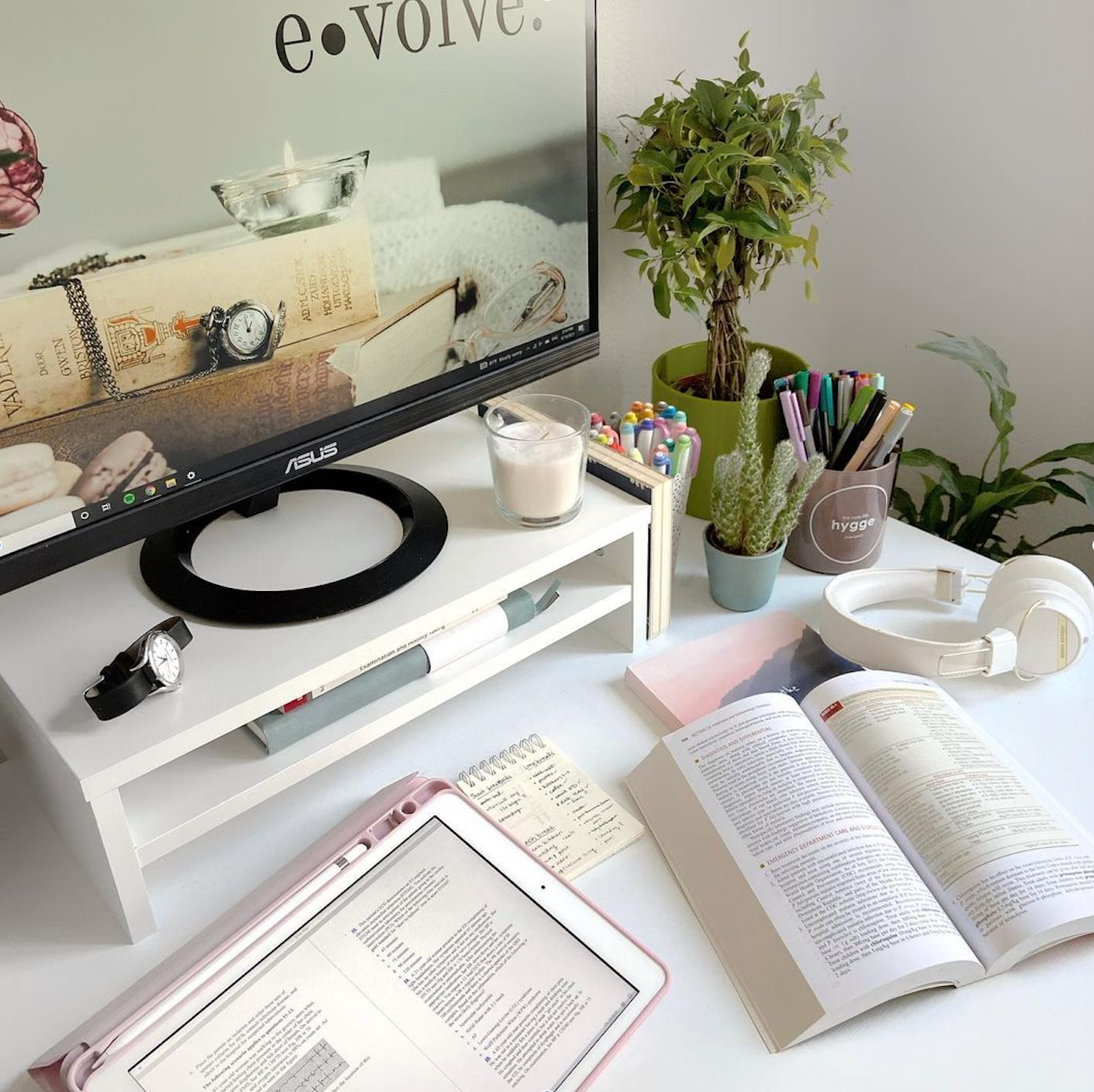


Comments
I have been suffering from Herpes for the past 1 years and 8 months, and ever since then I have been taking series of treatment but there was no improvement until I came across testimonies of Dr. Silver on how he has been curing different people from different diseases all over the world, then I contacted him as well. After our conversation he sent me the medicine which I took according to his instructions. When I was done taking the herbal medicine I went for a medical checkup and to my greatest surprise I was cured from Herpes. My heart is so filled with joy. If you are suffering from Herpes or any other disease you can contact Dr. Silver today on this Email address: drsilverhealingtemple@gmail.com
My husband filed for a divorce after 8 years of marriage ,it was difficult on me and the kids. I did all I could to save my marriage and my family but all failed until a friend of mine told me about the wonderful work of Priest Osazu .I contacted him and he assured me 24hours all will be well, the next day to my greatest surprise my husband came back home and he went on his knees and was crying begging us for forgiveness. I’m super excited right now thank you so much Priest Osazu, One message to him today can change your life too for the better. Email: osazu_spell@outlook.com
telegram -— https://t.me/solution59
My husband filed for a divorce after 8 years of marriage ,it was difficult on me and the kids. I did all I could to save my marriage and my family but all failed until a friend of mine told me about the wonderful work of Priest Osazu .I contacted him and he assured me 24hours all will be well, the next day to my greatest surprise my husband came back home and he went on his knees and was crying begging us for forgiveness. I’m super excited right now thank you so much Priest Osazu, One message to him today can change your life too for the better. Email: osazu_spell@outlook.com
telegram -— https://t.me/solution59
I had given up on ever getting cured of HSV2 because i have try many treatment none of them worked out for me, i have gone to different hospitals and they always tell me the same thing there is no cure for herpes. when i came across a post about Dr Osazu in the internet from a lady called Angela i contacted her and she reassured me with his herbal medicine which i took according to the way he instructed, that how i was cured. I doubted at first because i have been to a whole lot of reputable doctors, tried a lot of medicines but none was able to cure me. so i decided to listen to him and he commenced treatment, and under two weeks i was totally free from Herpes. i want to say a very big thank you to Dr Osazu for what he has done in my life. feel free to leave him a message on email osazu_spell@outlook.com
telegram -— https://t.me/solution59
Doctor Agbonhale treatment is 100% guarantee for HSV Cure, the reason why most people are finding it difficult to cure HSV is because they believe on medical report, drugs and medical treatment which is not helpful to cure HSV, Natural root/ herbs are the best remedy which can easily eradicate herpes forever for more information write for any health challenges.
WhatsApp👉👉 +2349073130326
Email: dragbonhaleherbalhome@gmail.com
God bless you.🙏 🙏
Doctor Agbonhale treatment is 100% guarantee for HSV Cure, the reason why most people are finding it difficult to cure HSV is because they believe on medical report, drugs and medical treatment which is not helpful to cure HSV, Natural root/ herbs are the best remedy which can easily eradicate herpes forever for more information write for any health challenges.
WhatsApp👉👉 +2349073130326
Email: dragbonhaleherbalhome@gmail.com
God bless you.🙏 🙏
For every ailment or disease, there exist natural herbs capable of providing complete recovery without any adverse effects. I have personally had numerous positive experiences with the herbal medicine I procured from Dr Aigbomian, which successfully eradicated my issue with the herpes virus. I am particularly impressed with the efficacy of these herbal products and would highly recommend them to anyone seeking a remedy for the herpes virus or other health conditions. here are his contact information, WhatsApp:+2349153323194
email: draigbomianherbalhome3@gmail.com
For every ailment or disease, there exist natural herbs capable of providing complete recovery without any adverse effects. I have personally had numerous positive experiences with the herbal medicine I procured from Dr Aigbomian, which successfully eradicated my issue with the herpes virus. I am particularly impressed with the efficacy of these herbal products and would highly recommend them to anyone seeking a remedy for the herpes virus or other health conditions. here are his contact information, WhatsApp:+2349153323194
email: draigbomianherbalhome3@gmail.com
Powerful Herbal treatment is 100% guarantee for HSV cure, the reason why most people are finding it difficult to cure HSV 1 or 2 is because they believe on medical report, drugs and medical treatments which is not helpful to cure HSV and hasn’t proved any sign of helping. Natural roots/herbs are the best remedy which can easily eradicate herpes forever. I never believed it until I was helped and cured of my 16 months genital herpes with natural herbal medicines from Dr Sikies. Where other medical prescribed drugs and treatments failed, Dr Sikies natural herbs helped saved me from Genital herpes permanently and I’m so grateful for this. You can also get help from this great and powerful Herbalist Dr Sikies by reaching himon Email: drsikies@gmail.com / WhatsApp +2348163430143 website to make order now : https://drsikiesherbalcuremedicine.weebly.com/
Powerful Herbal treatment is 100% guarantee for HSV cure, the reason why most people are finding it difficult to cure HSV 1 or 2 is because they believe on medical report, drugs and medical treatments which is not helpful to cure HSV and hasn’t proved any sign of helping. Natural roots/herbs are the best remedy which can easily eradicate herpes forever. I never believed it until I was helped and cured of my 16 months genital herpes with natural herbal medicines from Dr Sikies. Where other medical prescribed drugs and treatments failed, Dr Sikies natural herbs helped saved me from Genital herpes permanently and I’m so grateful for this. You can also get help from this great and powerful Herbalist Dr Sikies by reaching himon Email: drsikies@gmail.com / WhatsApp +2348163430143 website to make order now : https://drsikiesherbalcuremedicine.weebly.com/